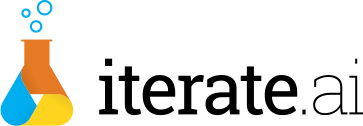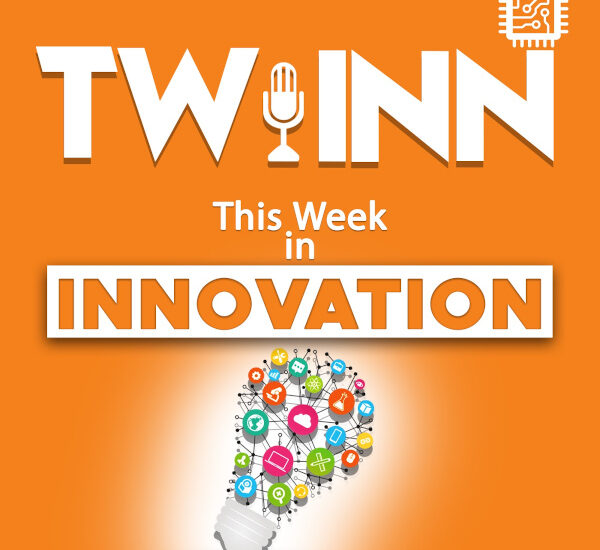Iterate CTO, Brian Sathianathan, returned to podcast “This Week In Innovation” hosted by Jeff Roster to walk through some predictions for 2022.
The pandemic sparked innovation. Pandemic-driven virtual acceleration set building blocks for new technology, and now, the world is building upon these foundations. Today, let’s talk about what we’re expecting to see within the next year.
Growth in Direct-to-Consumer Finance and Insurance Solutions
2021 saw a massive amount of acquisitions in this sector. Over 32 billion dollars worth of financing went into startups that provide direct-to-consumer financial solutions and insurance solutions. Though many of those startups were unknown a few years back, many have grown to become unicorns that SPAC companies now vie to acquire. We can expect this trend to continue at a fast rate.
Predictions:
- A lot of direct-to-consumer companies will get technology-powered by AI and ML, and as time goes by, they’ll start to replace banks and financial institutions.
- Parallels can be seen in the retail sector, where there has been a sudden growth in D2C.
The Metaverse Expansion
The Metaverse continues to capture headlines and attention among big players as well as an entire new crop of startups.
Predictions:
- There is going to be an exponential growth of branded as well as retail experimentation in the Metaverse.
- In the gaming world/virtual world, there will be a lot of content creation.
- In this space, bigger companies are all going to release new and improved tools.
- We’ll see platforms providing reusable pre-built worlds similar to CC, an open platform that the US military uses.
- Brands which create a presence in the virtual world through online stores that link to the physical world are going to be successful.
- Virtual try-ons can start working in the retail world, similar to the way they have been utilized in the business development sector.
- Manufacturers and mobile operators are going to use the Metaverse world for simulations. This will impact efficiencies in logistics, production, simulating energy usage, and many other verticals.
- Powered by AI and IoT, the Metaverse will have two sections – one will be for brand exploration and experimentation, and the other will be for large B2B players doing simulations and learning.
Faster Adoption of Low-Code
As a result of the pandemic, every organization is facing demands for new customer interactions, and that has accelerated the need for faster development cycles. Retail managers need efficient digital touchpoints to bring solutions to the market faster. The digital demand for teams has become so fast that use of low-code is a necessity, as it drastically speeds up development.
Predictions:
- The second version of existing technologies like ‘click and collect,’ ‘scan and go,’ ‘order online and get home delivery,’ AI-driven prescriptions, AI-driven chatbots, AI-driven voice applications and personalizations are going to be powered by low-code.
- The five forces of innovation (AI, IoT, blockchain, data, and integration with SaaS) are hitting the market at a great speed, and low-code is the natural need to keep up.
- Traditionally low-code platforms focused on developers, but now, they are also usable by digital leaders and marketers.
- Low-code offers the capability to transform an entire industry while keeping the IT span within 5-6% growth.
Final Adoption of Enterprise AI
At its core, Enterprise AI involves taking AI technologies and building apps within the enterprise’s IT organization. Setting the groundwork for AI apps will allow an enterprise to deploy those apps faster. This involves not only having the AI engine, but having the necessary libraries and APIs to access that AI engine.
Predictions:
- Companies that embrace a generalized approach to AI will succeed.
- Companies will bring together not just one AI platform, but a series of platforms that hook together to meet any individual needs including voice, image recognition, recommendation, or object identification problems.
- AI is needed to process tabular data, image data, video data, and voice data.
- Responsibility for comprehensive AI will be shared as CMO and CIO come together to build a comprehensive solution.
- Low-code and AI infusion is going to build a bridge between these worlds.
Transformational Experiences in Online Shopping
The retail experience will continue to evolve even more rapidly.
Predictions:
- Digital shopping carts and experiences will be implemented online for a lifelike shopping experience.
- Search engines and gatekeepers must create avenues outside their walled gardens, and they need to get together with retailers and brands.
- Retailers are thinking of building digital touchpoints that will follow consumers, and not just with re-targeted ads.
Explosive Growth in Food Technology
- Different food items (like meats) are going to be made within a laboratory setting.
- Superfoods, known to be vitally healthy, will be explored and marketed.
- Home deliveries of food items and groceries will become more commonplace.
Software-Driven Health
- Health and fitness brands, like Peloton, grew massively during the pandemic.
- Consumers have been lately investing in healthy beauty products and health-related D2C products.
- With the usage vitally going up, algorithm-driven beauty tests have been put into use.
- Keto and other diets have seen a massive growth where startups are deploying algorithm-based recommendations.
- Health-based startups have started selling products that are customized to consumers’ health needs, and this will soon be seen everywhere.
- Algorithmic-defined recommendations are going to become more powerful, and retailers and gatekeepers (like Apple Watch) are going to integrate it in their portals.
Software as an Extender
Hardware powered by intelligence software is considered an extender, as it can be leveraged for daily convenience as we go through life. The clearest example is the smartphone.
Predictions:
- In the near future there is going to be a digital twin for every physical activity which will be majorly connected to ML, AR, VR, and even the Metaverse.
- Every IoT device is an extender, and in the IoT world, these extenders are increasing by billions every year. Check out our post on IoT as wearables here.
- This massive growth of platform extenders will happen across different verticals across industries, be it beauty, insurance, finance, or retail.
Looking Ahead
We expect to see all of these predictions, and more, to come into fruition throughout 2022. It is essential that retailers take a look at where technology is today and where it is moving, rather than waiting for the data to prove it correct. We at Iterate are looking forward to the future, and we encourage all enterprises to do the same.
If you’re interested in hearing more, or learning about our AI-powered solutions, contact us here.

